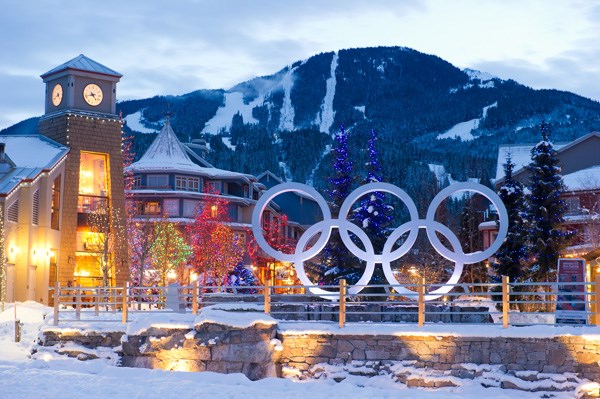If there was one crucial message to come out of the Resort Municipality of Whistler’s (RMOW) 2023 budget process, it was this: The municipality is in dire need of more revenue to keep pace with record-high inflation.
While the RMOW plans to raise property taxes by 8.4 per cent this year, the budget also highlighted the need for the municipality to find other alternative income sources. One significant potential source is corporate sponsorships and advertising on municipal assets.
On Jan. 10, Whistler’s mayor and council received a recommendation report to develop a Sponsorship Strategy and Plan that will assess the value of Whistler’s assets and establish revenue targets, sales and service strategies with the long-term goal of bringing more money into municipal coffers.
“We’re doing this to explore alternative revenue opportunities. We’re re-examining sponsorship as a potential source of
incremental revenue,” said RMOW manager of cultural planning and development John Rae.
“As guided by the [Official Community Plan], we have a fiscal duty to examine alternative sources of revenue and therefore reduce reliance on property tax; one of those is sponsorship,” Rae said. “We have a sponsorship policy adopted in October 2014, and the recommendations in this report are to re-activate the RMOW’s pursuit of sponsorship.”
This isn’t the RMOW’s first exploration into naming rights. A pilot project launched in 2014 through the Festivals, Events & Animation program offered corporations naming rights to the annual Whistler Present concert series and street entertainment offerings, but was ultimately scrapped after the RMOW received no qualified proposals, with businesses indicating they were more interested in the naming rights of capital assets than seasonal programs.
Following the pilot, the push to sell naming rights grew less urgent as Resort Municipality Initiative and Municipal and Regional District Tax funds increased significantly in the subsequent years.
In 2013, the RMOW commissioned a report through UNITE Partnerships Inc. that valued the RMOW’s total available sponsorship assets at $6.9 million. This potential income will be reassessed by UNITE, as the number of assets and tourists to the resort have increased over the past decade.
Some of the RMOW’s assets that could receive corporate sponsorships—and ultimately be renamed—include buildings and infrastructure, such as the Meadow Park Sports Centre, Whistler Skate Park, and Olympic Plaza.
The report to the council also noted sponsors may be interested in a tiered system that could be divided between different levels and come with various perks, such as integrating the sponsor’s brand into a program’s title.
Generally, council agreed that finding alternative forms of revenue is a good move for the RMOW. However, councillors noted the RMOW must choose its sponsorship partners and the capital assets that could be renamed carefully.
“I think this is a great opportunity to realize some non-tax revenue for our venues and for programs that may otherwise not be able to be viable, and so I think that this is a huge opportunity,” Councillor Jen Ford said.
“I think that the sensitivity with which we approach these sponsors or consider the sponsors approaching us and the types of relationships that we build through this is really important and under a lot of scrutiny from our community and
outside communities.”
Rae also noted that the new strategy would make a point of working with staff at the Lil’wat and Squamish Nations, as well as with the Squamish Lil’wat Cultural Centre, to identify ways the sponsorship strategy may open up new opportunities for collaboration and reconciliation.
More than $1.4 billion was spent on sponsorships in 2021 in Canada, down significantly from $3 billion in 2019, but more than the the $1 billion spent in 2020. Sixty-three per cent of that amount went to pro and amateur sports in 2021, with the remainder going toward festivals, attractions and cultural programs.
Staff will bring a detailed sponsorship strategy plan and report to the council in the next four to six months. If a plan is approved by Aug. 1, the 2024 draft budget will include incremental revenue from sponsorships, staff said.





